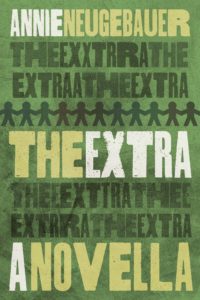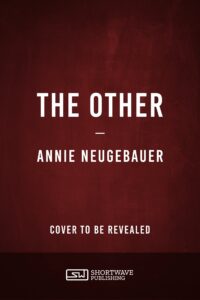 Is your poetry folder chock-full of files called “Untitled 1,” “Untitled 2,” and so on? You’d think that if we poets can find inspiration, import meaning, write a poem, revise it, and polish it, that we’d be able to slap a title on the thing, but it’s rarely that easy. Many poets struggle with what to call their work. Some poets think it’s the hardest part about writing a poem. Today, as part of my continued celebration of National Poetry Month, I’m going to do my best to help poets beat those title-searching blues.
Is your poetry folder chock-full of files called “Untitled 1,” “Untitled 2,” and so on? You’d think that if we poets can find inspiration, import meaning, write a poem, revise it, and polish it, that we’d be able to slap a title on the thing, but it’s rarely that easy. Many poets struggle with what to call their work. Some poets think it’s the hardest part about writing a poem. Today, as part of my continued celebration of National Poetry Month, I’m going to do my best to help poets beat those title-searching blues.
Things a Title Should Do
Intrigue the Reader
A really catchy or compelling title will spark a reader’s interest so they want to read the poem.
Fit the Poem
Your title is your first impression, so you want it to be accurate. If the theme or tone of your title intrigues a reader, and then doesn’t actually fit the poem, they’ll be disappointed. You want the title and poem to convey the same feeling so they attract and please the right reader.
Further or Support Intent
Poems are short; we have no space to waste. Not a single word should go un-utilized, and the title is no exception. Ideally, the title should further the intent of the poem (i.e. add more meaning to the poem’s message). If that’s not possible, the title should at least support the intent of the poem.
Things a Title Shouldn’t Do
Spoil the Ending
Nobody likes spoilers! So why on earth would you include one in your title? I think many poets title their poems after they write them, so they often forget that the title is first, not last. Especially if your poem has a twist or unexpected ending, go back (or give it to a critique partner) to make sure your title doesn’t give too much away.
Wear Out Your Phrasing
I often see a super catchy title that draws me in to read a poem, only to see that title repeated (sometimes often) in the poem itself. The intent here is obvious: the poet has come with a good unique phrase. In the effort of putting their best foot forward, they use it as the title, too. The problem is that the more you use a unique turn of phrase, the less unique it seems. Of course this is subjective, but get some critique partner feedback to be sure you’re not “wearing out” your best phrases by using them as a title.
Mislead
A strong title is important, but not at the expense of the poem itself. As I mentioned above, you want your title to fit the poem. If the title is snazzy but sets up false expectations, the snazziness might just backfire. If the only special title you can come up with doesn’t fit your poem, I’d recommend going with a more ordinary title and writing a new poem that does fit your special one.
Brainstorming Help
Now that we’ve established what a good title should and shouldn’t do, let’s talk brainstorming. It should be said up front that not all of these title options will work for you or your poem. Each poem is different, and therefore each title has different needs. This list is just intended to get you unstuck if you’re stuck.
Okay, so re-read your poem, and then read this list, jotting down any and all ideas that it gives you, no matter how silly they seem at the time. No one will see this but you, and you never know when a weird idea will spark the right idea.
- summarize your poem
- look up your poem’s subject in an encyclopedia and find relevant jargon (preferably that adds to or supports the poem’s intent)
- label your poem
- look up synonyms for your poem’s “label”
- come up with a beautiful turn of phrase that’s not in poem
- take a beautiful phrase from your poem, make it the title, and change it in the actual poem
- state the message outright
- list several unique words
- state the most shocking aspect of your message
- use the strongest verb in your poem
- use an adjective that encapsulates your poem
- choose an uncommon noun relevant to your poem
- find a word that has double meaning when looked at in the context of your poem (this is one of my personal favorites)
- find a word that brings new or additional meaning to your poem
- give vital “grounding” information in your title (such as a setting, time period, or location)
- use the location and/or time of where and when you wrote the poem
- ask a question that your poem answers
- use your last line to inspire a title
- find a title that changes meaning once the poem has been read
- Still stuck? Try bumping the first line of your poem up as title, which leads directly to your second line (now the first).
Other Thoughts
Poems are short! It’s easy to write lots of them, so why not use them as an opportunity to be adventurous and creative? Maybe you wouldn’t title a novel something that’s an entire sentence long, but a single poem? Well, why not? If it doesn’t work you can try something else with the next one.
If you have a collection of poems, keep in mind that not every poem can have a spectacularly unique title. In fact, I don’t think they should. If a reader has picked up your book, they’re going to read multiple poems. You don’t need to “hook” them with each title; it would become sort of wearisome. Instead, consider playing with your titles throughout by bringing in poems with linked titles, a shared format, theme, or some other way of making them “play” together.
Of all the many options, the worst title is a trite title. Clichés and melodramatic phrases are the fastest way to put off a reader and spoil an otherwise solid poem. If you have to choose between a trite title and a “plain” title–I would choose plain every time.
That’s it for me on titles! Do you struggle with titling your poems? Feel free to share your questions, experiences, and tips below!
Share this:





This is good stuff!!!
Thank you!
Very helpful. 🙂
I’m glad! Thanks!
I love it. Concise, useful tips appropriate for any age. I’m sharing this with my teacher friends!
Thank you! That’s awesome; I hope it helps!
I’ve been thinking a lot about titles lately. Not so much
poem titles. Short story titles (revamping a few) and wondering if a novel
title is right. Also waiting for inspiration for a title for a new novel in
progress. But the questions you ask us to consider could easily apply those
sorts of writing as well.
The funny thing about a title is sometimes it’s there from
the beginning, and sometimes it shows up during the process of writing. Others
times it’s a bit of a muddled struggle to find the right one. Your list is
wonderful, Annie. I’ve copied it and am going to use it to think about the
titles I need! Thank you, thank you. 🙂
I’m so happy to hear that! Thank you so much, Cynthia. I know exactly what you mean: I always say a title either strikes me and feels perfect right away or I’m never *fully* satisfied with what I come up with. I agree that these things can be applied to other types of titles too; thanks for pointing that out! Best of luck with your titles!
These are great tips for titling stories and articles too, actually. What a good point about not spoiling the ending. It is funny how tempting it can be to do that.
That’s awesome! Thanks, Nina.
I struggle at times, other times, it just happens to pop in my head, much like the poem itself. I do try and tie it into the poem itself though, maybe I’ll have to consider my titles more in depth before choosing them.
I’m exactly the same way, Traci. More thought can’t hurt; a title is an important but often rushed part of a poem!
Thanks Annie! Someone just posted your site today on our Facebook group page. The first resource I used was “Titling Poems.” Until now I’ve had quite a few untitled poems. As your “Brainstorming Help” list implies, it may take a little time and some consideration to come up with an appropriate title, but it’s well worth it. Thanks again for the wonderful suggestions.
Hi Joe! I’m so happy it’s useful to you. I would love to know what Facebook group you’re in so I can go thank them! And best of luck coming up with your missing titles. 🙂
Our Facebook group is called “Emerging Authors.” It’s a closed group, so I don’t know if Facebook allows you to leave a message or not. If not, you can leave one with our workshop leader “Katie Lytle Rothschadl.” She’s the one who posted your site, and I’m sure would share a message from you.
P.S. Having been an elementary teacher, I’m very used to creating and using charts where students and teachers can record information. I think that’s another reason why I’m happy to have your site as a resource.
Oh, okay. Well please pass on my thanks! I love that the charts, etc. are helpful! That’s the type of aid most useful to me, too. Thanks so much.
Pingback: How To Give The Perfect Title To Your Poem - ArtHut | Resources for Creative Writers
I am so thankful that there are still voices, real voices, available to read and hear. A simple google search for ‘creating poem titles’ returns so much AI slop and content farms of more slop without real advice – but plenty of ads! Thank you for keeping your pages available. Really. Thank you! 🙏